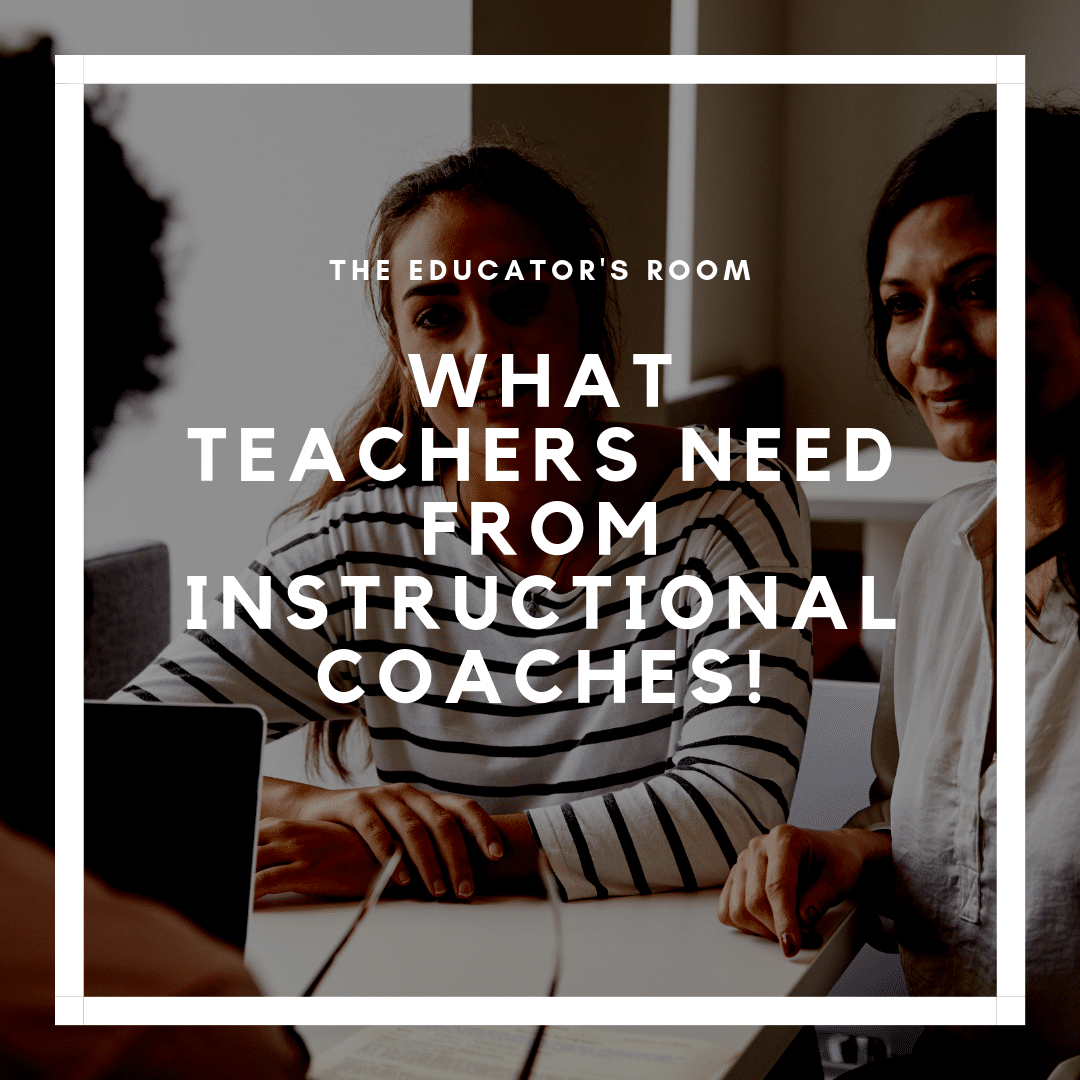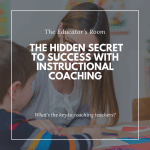Have you ever thought about the role of instructional coaches? There are various models and expectations that instructional coaches have across different school districts. According to one school district, a few job descriptors for an instructional coach include: working with teachers to provide research-based instruction based on the school improvement plan and model effective instructional strategies.
Oftentimes, teachers are truly unaware of the benefits of having an instructional coach. This may be based on prior experiences, such as having a negative coach or never having a coach at all, but there are various benefits to having an effective instructional coach in your corner.
I’ve had various conversations with colleagues about the role of an instructional coach. Here is what teachers desperately need from instructional coaches:
Developed relationships
Coaches should not expect to truly be able to mentor and develop teachers if they don’t have a relationship with them. Just as teachers are expected to build intentional relationships with students, coaches should do the same. It is not enough to simply introduce yourself one day and observe the next. This turns many teachers away.
An Advocate
From my personal experience, it is so critical that instructional coaches are advocates for the teachers. The ultimate goal is to provide the most effective instruction to increase student achievement. When coaches have ulterior motives; such as aspiring to become an administrator, they may throw teachers under the bus in order to get on the good side of administrators. Not only is this unprofessional, it is ugly and unfair to teachers who truly need the help.
Modeling
When teachers have courage enough to ask for help, that is what they expect. I remember asking a coach to model a lesson from a new writing unit because I wanted to know the expectations. Rather than modeling, she came in, observed me, and gave me feedback. The feedback did nothing for me at that time because I was already aware of my challenge areas.
[bctt tweet=”When teachers have courage enough to ask for help, that is what they expect. ” username=””]
Specific feedback with follow up resources
After observing teachers, coaches should provide specific feedback. Teachers need to know their strengths and areas for growth. With the areas of growth, teachers will definitely appreciate resources to help them in those areas. There should also be a follow up observation to check on how the teacher is growing in their challenge areas.
Instructional coaches are certainly an asset in schools. With the demands on administrators, they don’t always have the time and resources to truly focus on instruction as they should. Instructional coaches are that liaison between district/admin expectations and effective instruction. Teachers need you. It isn’t about your aspiring goals. It is about ensuring our students receive the best instruction.






